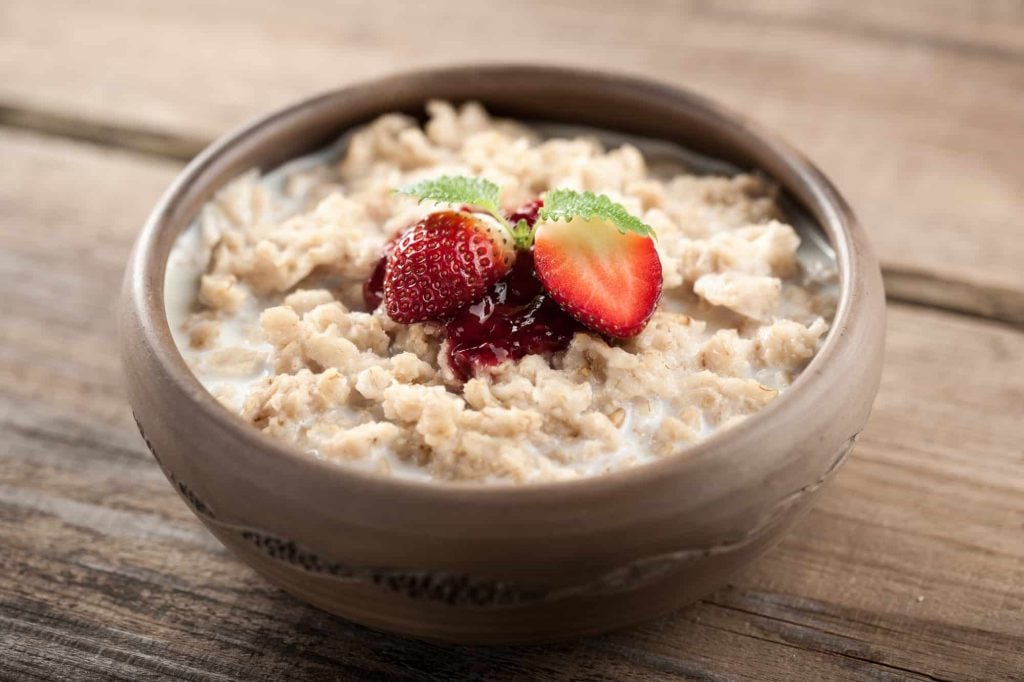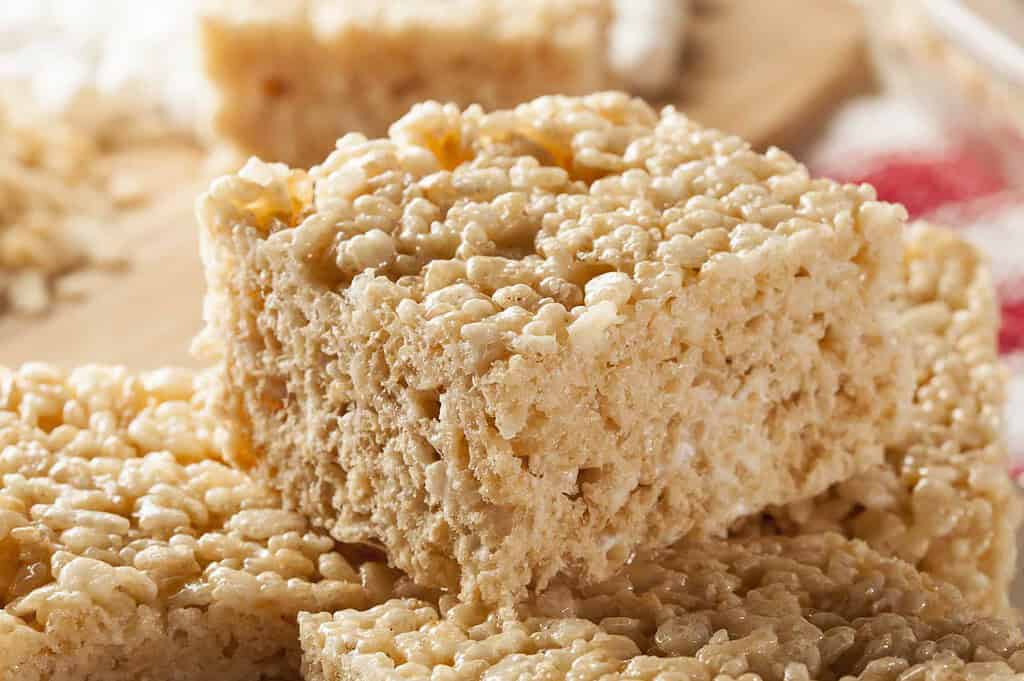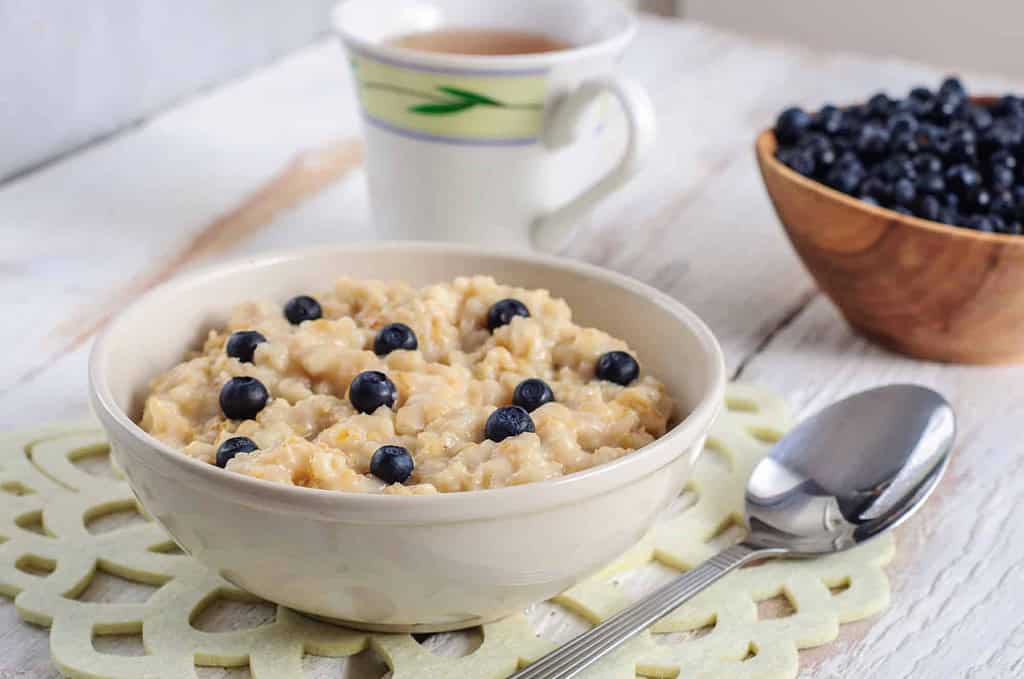Children wearing braces often change their dietary habits due to food trapping and breakage concerns. With nearly half of children being consumers of breakfast cereal, those wearing braces might wonder if eating their favorite food for breakfast is safe. (sources: ProQuest & US National Library of Medicine)
You can eat cereal with braces. Recommended cereals include soft, rice-based versions, including Rice Krispies, Brown Rice Crisps, or Rice Chex. Avoid hard cereals, like Honey Bunches of Oats or Honey Clusters (and other crunchy varieties), unless you soak them in milk to soften them before eating.
This article touches on the best cereals to eat when wearing braces and how to safely eat cereal with braces. Additionally, we’ll discuss some popular cereal brands, as well as alternatives to hard breakfast cereals for braces wearers. Read on to learn more.
What’s the Best Cereal Choice With Braces?
Most orthodontists agree that crunchy breakfast cereals are not an ideal food choice for those wearing braces. Dr. Oleg Drut, DDS, opines that most cereals designed to be eaten with milk are much too hard. They may put unnecessary pressure on brackets and wires, leading to breakage or loosening. (source: Diamond Braces)
While being unable to eat cereal for breakfast sounds like a drag, there is some good news. There are dozens of breakfast cereals available that are safer for people with braces to enjoy. The most important part of choosing a safe cereal is picking one that’s softer and low in sugar. (source: Race Orthodontics)
Soft, rice-based cereals are preferred over nut-like cereals. Nut-like cereals contain hard pieces that could bend or break the brackets or snap the wires. Sometimes, the tiny crunchy bits can make their way behind the brackets, causing dental decay and unsightly white spots on removal of the braces. (source: Stroop Orthodontics)
The best cereal choices for braces are softer, rice-based cereals, such as Rice Krispies or Rice Chex. These are softer cereals than nut or granola-based and are not as high in sugar. Cheerios, Raisin-Bran, and Cornflakes are also acceptable, as long as they’re soaked in milk beforehand.

Can I Eat Soggy Cereal With Braces?
You can eat soggy cereal with braces. The International Journal of Orthodontic Rehabilitation lists cereals with milk as “Green Light” foods, meaning they’re safe to eat when wearing braces. As the cereal soaks in the milk, it softens, making it less likely to cause damage to the wires or brackets.
West Los Angeles Orthodontics recommends waiting until cereal is slightly mushy before eating — if you can stomach the texture. (source: West Los Angeles Orthodontics) While you can still eat cereal with a bit of firmness or crunch, waiting until the milk fully absorbs into the pieces is a guaranteed safe approach.
However, if you’re still unsure how to safely consume cereal with braces, the next section will help you maintain the best oral hygiene without sacrificing your favorite cereal.
How To Safely Eat Cereal With Braces
According to a study published in The International Journal of Advanced Research, breakfast cereal is a suitable part of a balanced diet for braces wearers. Rice cereals are best, as they’re soft and easily chewed.
Gruelle Dempsey Orthodontics states that crunchy or hard cereals are food to be cautious of when wearing braces, not necessarily totally avoided. As long as you’re smart about the cereal you eat and how you eat it, you needn’t forgo it altogether. (source: Gruelle Dempsey Orthodontics)
First, you’ll want to let the milk soak into the cereal to soften it. The table below shows the average time it takes for different popular brands of cereal to become soggy with few firm pieces left.
| Cereal | Time Until Soft and Soggy |
| Rice Krispies | ~4 minutes |
| Corn Chex | ~4 minutes |
| Froot Loops | ~6 minutes |
| Cheerios | ~8 minutes |
| Cap’n Crunch | ~12+ minutes |
(Source: Prezi)
Once the cereal has softened, be mindful of how you chew the cereal. Chew thoroughly using your back teeth until the food is practically a liquid before swallowing.
In addition to the tips above, it’s crucial to maintain proper dental hygiene after eating cereal while wearing braces:
- Brush your teeth for at least two minutes after every meal. Use fluoride toothpaste and a soft-bristled toothbrush to dislodge food particles from the brackets, wires, and teeth.
- Floss between the teeth and the braces. Floss threaders allow you to pull the floss beneath each wire, removing any cereal or other debris that may end up there.
- Use a water jet on hard-to-remove food particles.
(Source: University of California – San Diego Health)

Can I Eat Rice Krispies With Braces?
Despite the name, many people aren’t aware that Rice Krispies are truly made from rice — the same rice that you see when you cook stir-fry, roll sushi, or grab Chinese takeout. Kellogg’s rice comes from farms in Louisiana and Arkansas.
It’s harvested, processed, cooked, dried, rolled, and then toasted. The toasting process is what gives Rice Krispies their signature crisp.
You can eat Rice Krispies while wearing braces. Rice Krispies and other rice-based cereals are softer than nut, oat, or granola cereals, even when eaten without milk. This “puffed grain cereal” goes through a toasting process that contributes to its crispy, softer texture and malt-like flavor.
Can I Eat Lucky Charms With Braces?
Lucky Charms are a crunchy breakfast cereal made using whole grain oats as the main ingredient. It also contains 12 grams of sugar per serving and preservatives.
You should avoid eating Lucky Charms when wearing braces. The crunchy pieces may cause the braces to bend or break, and the high sugar content could lead to tooth decay if you’re not meticulous about your oral hygiene. Additionally, the marshmallows are sticky and may become lodged in the braces.
If you must eat Lucky Charms despite wearing braces, eat it only in moderation. Soften the cereal in milk before eating, and be mindful of how you’re chewing the marshmallows.
Other Cereal Types
There are multiple different types of cereals besides the boxes we typically see in grocery stores. Some of those cereals include nut-based crunchy cereals, granola cereals, quick oats, and hot cereals, like Cream of Wheat.
According to Wilkinson Orthodontics, an Australian-based dental practice, the harder a cereal is to chew, the more likely it will damage your orthodontic dental appliance. As such, you should avoid alternative cereals like nut-based cereals and granola. These types of foods do not soften well in milk. (source: Wilkinson Orthodontics)

Quick oats and hot cereals are excellent alternatives to crunchy breakfast cereals. They’re soft, easy to chew, and less likely to end up stuck in the braces. Those foods include oatmeal, soft rice cereal, and Cream of Wheat. You can add fresh chopped fruit or even a dash of cinnamon to these cereals for extra flavor.
There are differing opinions on the consumption of crunchy cereals while wearing braces.
Seton Hill University’s Center for Orthodontics recommends avoiding any and all hard or crunchy foods, whereas the University of Connecticut doesn’t specifically mention cereals as forbidden foods for braces wearers. (sources: Seton Hill University & University of Connecticut)
Overall, however, the general consensus seems to be that if it’s soft, it’s safe. Milk is your best friend when eating crunchy cereal while wearing braces — it provides calcium and softens the cereal, making it easier to consume.





Comments are closed.